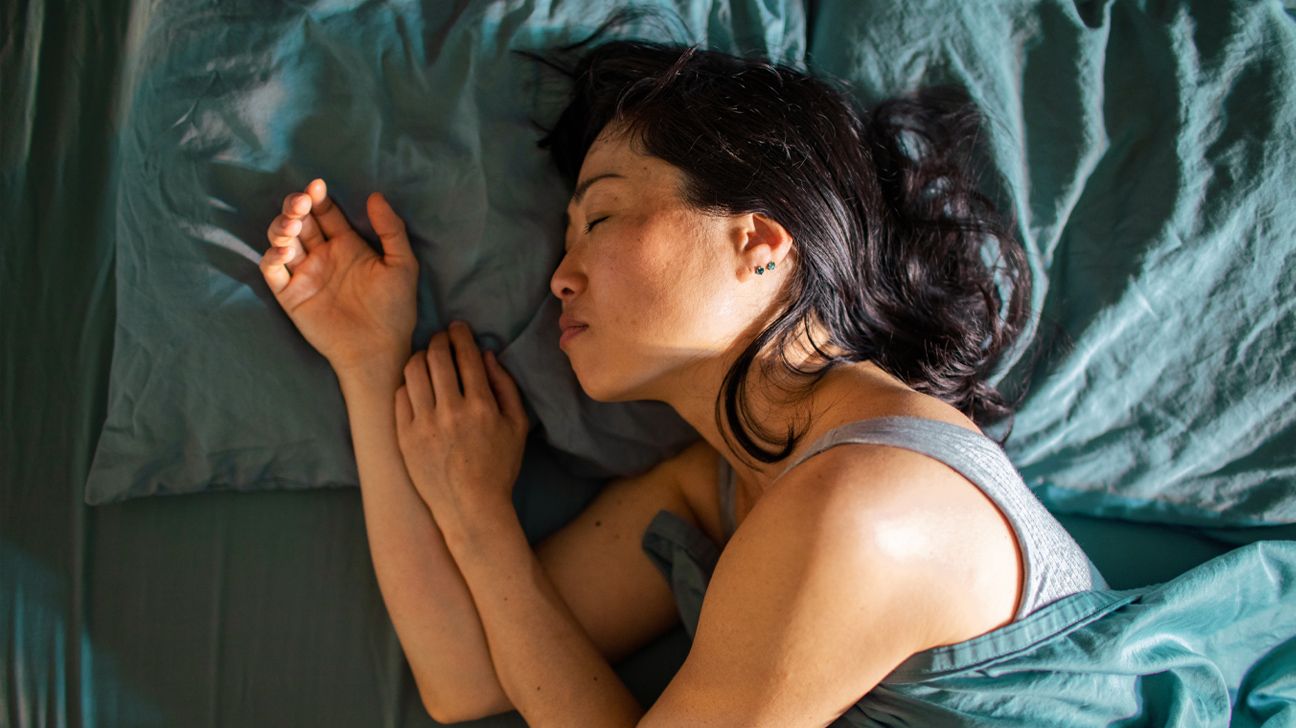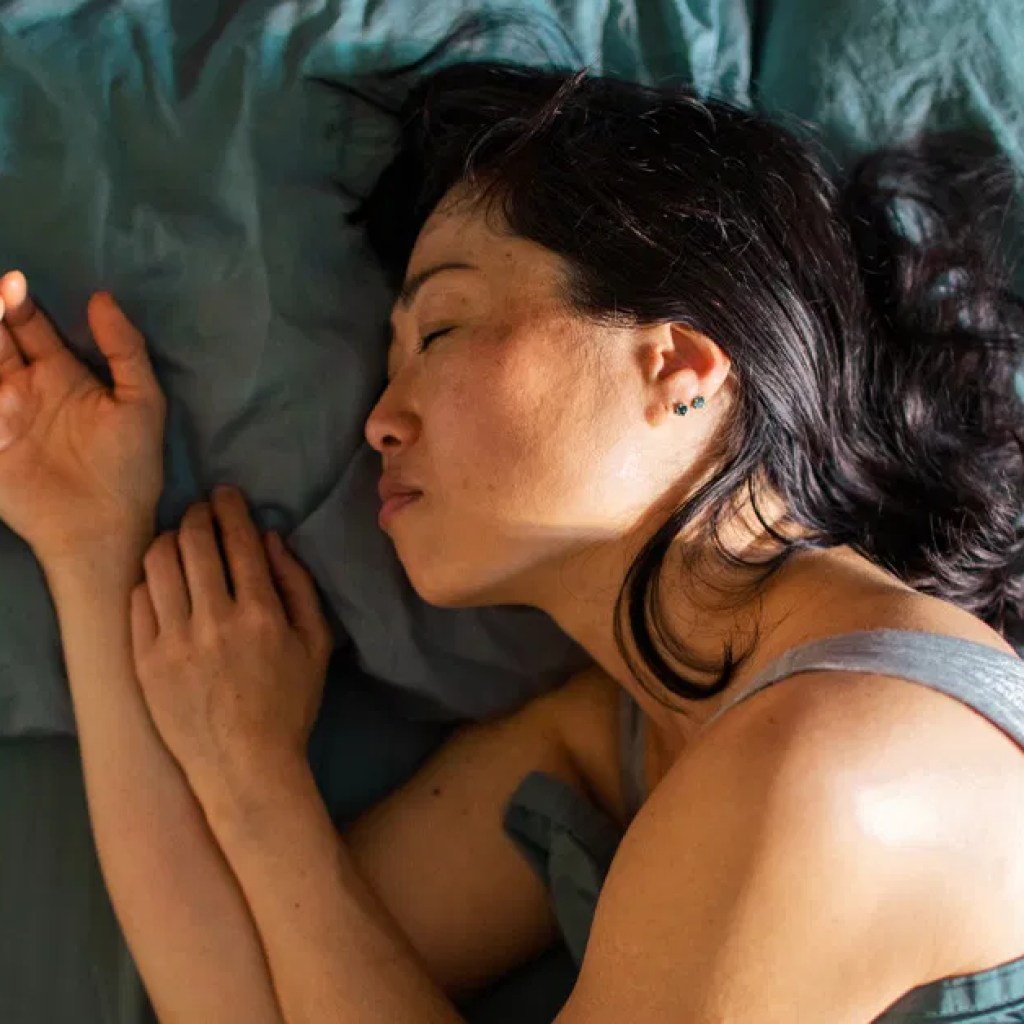
- Cannabis products consumed on a daily basis resulted in better sleep for people with insomnia in a new study.
- Participants also reported improvements in anxiety and depression as well as pain levels.
- Cannabis continued to reduce insomnia throughout the 18-month trial, although the effects waned over time.
- Experts caution that tolerance for cannabis may reduce its value as a long-term sleep aid, and note other health risks associated with chronic cannabis use.
People with insomnia experienced improved sleep with regular cannabis use in a new study.
The authors report that participants experienced less insomnia using cannabis products daily throughout the 18-month study period. The findings were published on August 27 in PLOS Mental Health.
Estimates of the number of people who have difficulty sleeping range from 10%, as cited by the study authors, to as high as 30%.
Effective medical treatments for insomnia are available, but they often come with side effects and a risk of developing a dependence.
In the new study, researchers recruited people who had been diagnosed with primary insomnia and who were registered with the UK Medical Cannabis Registry. The final study cohort was 124 participants, 18 years old or older.
Individuals were each prescribed the same controlled daily dosage of cannabis supplied by the authors of the study.
Cannabis was consumed in oil or dried flower form, or a combination of both. No external cannabis was allowed during the trial period.
A total of 11 participants experienced 112 adverse events, including fatigue, dry mouth, and insomnia, though none of these were considered disabling or life threatening.
At the end of the 18-month trial, participants said that cannabis was still helping them sleep. However, the strongest benefit was observed during the first month of the trial and slowly decreased through the study period.
In addition to reporting insomnia relief, individuals said they also experienced less pain and that their levels of anxiety and depression improved throughout the trial.
“Many people with anxiety and depression have trouble falling asleep because of racing thoughts, so that’s where cannabis helps in the short term.”
Previous research studying the effects of cannabis on sleep quality has not consistently confirmed its value.
The study followed participants for a year and a half, however, it’s unclear whether cannabis is a viable long-term sleep aid.
The authors note that one potential issue is how the body develops a tolerance for cannabis, meaning that consuming more and more of it may be necessary to achieve the same result.
They suggest that the decrease in the effectiveness of cannabis over time is likely related to participants’ growing tolerance.
“There is evidence indicating the consistent medical use of cannabis is associated with higher usage over time, resulting in increased risk of tolerance and dependence,” Patel said.
Bonaguro noted that cannabis use often becomes a cycle. “It gives short-term relief of anxiety or depression, but with prolonged use, tolerance builds, dependency develops, and both mood and sleep get worse,” she said.
The study investigated daily consumption of cannabis products for insomnia, and Patel noted there are side effects associated with frequent use.
However, as a 2021 review notes, cannabis may compare favorably “in regards to safety and tolerability with other drugs, such as opioids, and it is important to weigh up the benefits of use vs the risk of dependence.”
The review further notes that the risk of adverse side effects, such as tolerance or dependence, may not outweigh the medicinal benefits of using cannabis for the management of chronic health conditions, “highlighting the need for a medicine with a good safety profile.”
As for sleep, however, cannabis use may be disruptive for some. Some research suggests that cannabis may affect slow-wave (N3) sleep. There is also suspicion that it fractures REM and deep sleep.
“One more thing I frequently heard from clients who use it regularly or sporadically is that they can’t remember their dreams,” said Bonaguro. “This makes sense since THC is well-documented to suppress REM sleep, which is when most dreaming occurs.”
Patel added that chronic cannabis use has also been linked to psychiatric problems in susceptible individuals.
The authors of the study conclude their report with an expression of their own concern.
They note the likelihood that insomnia patients will develop a tolerance for cannabis may ultimately limit the substance’s usefulness as a long-term therapy, however successful it proved throughout the relatively short-term of the study period.
Those successes alone, they argue, merit further randomized controlled trials of cannabis use in treating insomnia.


